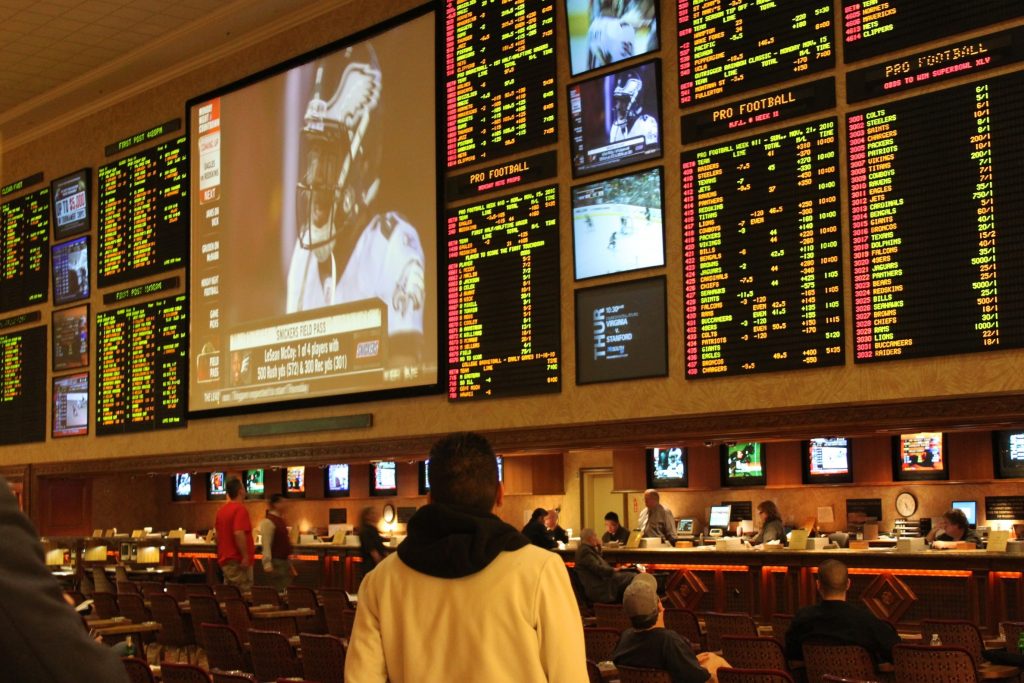Purpose of Oddsmaker in Sports betting

The purpose of an oddsmaker is to set betting lines for sports events in order to encourage betting on both sides. By doing so, the oddsmaker creates a market for bettors and bookmakers, and ultimately generates revenue for the casino or sportsbook.
In setting lines, oddsmakers must account for a number of factors, including the type of sport, the league, the teams playing, the location of the game, the weather, and more. They also must consider public perception; if the public is overwhelmingly betting on one team, the oddsmaker may need to adjust the line to encourage betting on the other team.
Oddsmakers use a variety of methods to set lines, including computer simulations, power ratings, and historical data. In the end, they are trying to create a line that will encourage equal betting on both sides while still generating revenue for the sportsbook.
There are a few different types of sports bets that oddsmakers will set lines for. The most common are point spread bets, moneyline bets, and total bets.
Point spread bets are the most popular type of bet in North America. In a point spread bet, oddsmakers will set a line that predicts how many points one team will win or lose by. Bettors then choose which team they think will cover the spread.
Moneyline bets are less common than point spread bets, but they are growing in popularity. In a moneyline bet, oddsmakers will set a line predicting how much money you would need to bet on one team in order to win $100 if they win the game. Moneyline bets don’t have spreads; instead, the odds reflect how likely each team is to win.
Total bets are another type of bet that is becoming more popular. In a total bet, oddsmakers will set a line predicting how many points will be scored in a game by both teams combined. Bettors then choose whether they think the final score will be over or under that number.
What do oddsmakers do?
Oddsmakers are the people who set the betting odds for sporting events. They are also sometimes called line makers or simply odds makers. Oddsmakers use a variety of methods to come up with the odds for a given event, and they take into account many factors when doing so.
The most important factor that oddsmakers consider is the public’s perception of the event. The general public tends to bet on the favorites and the underdog, so oddsmakers will adjust the odds accordingly to try and get as much money on both sides of the bet as possible. They also take into account things like weather, injuries, and recent form when setting the odds.
Oddsmakers have a very difficult job, and they are often very good at it. However, there are times when they make mistakes and the odds are not accurate. When this happens, it is called an “upset.” An upset can be very costly for both the bookmakers and the bettors, so it is important to be aware of them.
The best way to avoid an upset is to do your research before placing a bet. Oddsmakers are usually very good at what they do, but they are not perfect. If you have a good feeling about an underdog, don’t be afraid to bet on them. You could end up winning a lot of money!
How do oddsmakers make lines?
Oddsmakers are the people who set the betting lines for sporting events. They use a variety of factors to come up with their lines, including public perception, historical data, and their own personal opinion.
The first thing oddsmakers do is look at the public perception of the two teams involved. They’ll look at how the teams have been performing lately, any injuries they may have, and any other factors that could affect the game. They’ll also look at how the public is betting on the game. If oddsmakers think the public is underestimating a team, they’ll set a higher line to try and get more people to bet on them.
Next, oddsmakers will look at historical data. This includes things like how often a team has won or lost against a certain opponent, how they’ve performed in similar situations, and any other relevant information. Oddsmakers will use this data to try and predict how the teams will fare against each other.
Finally, oddsmakers will use their own personal opinion to come up with a line. This is where their experience and knowledge of the sport comes into play. Oddsmakers will take everything they’ve considered so far and come up with a number they think is fair.
Oddsmakers have to walk a fine line when setting lines. They want to set a line that will encourage betting on both sides, but they also don’t want to set a line that’s too far off from what they think will actually happen in the game. If oddsmakers set a line that’s too high or low, they risk losing money if the public bets against them.
Oddsmaking is an inexact science, but the best oddsmakers are usually pretty accurate in setting lines. It’s not an easy job, but it’s an important one. Without oddsmakers, there would be no betting lines and no way to know what to bet on.







